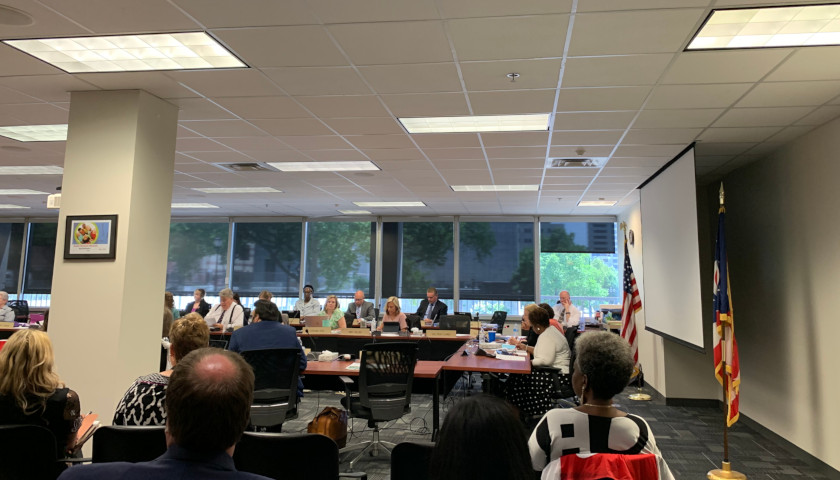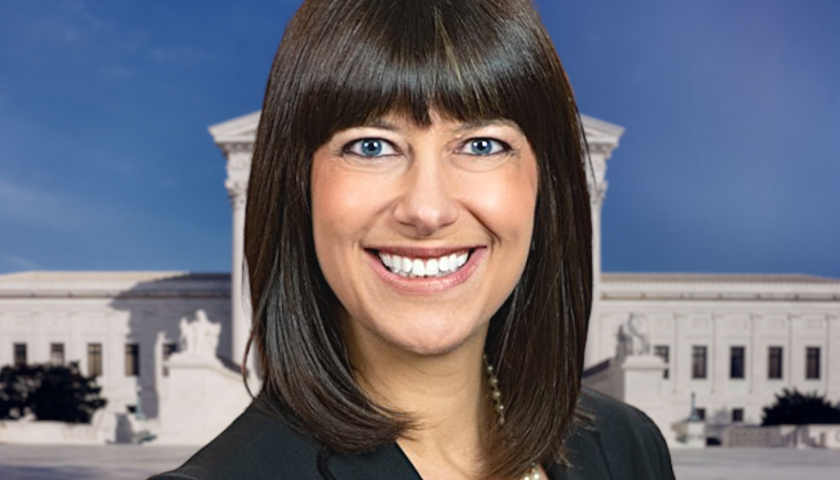COLUMBUS, Ohio — The State Board of Education (SBE) continued the battle over Social Emotional Learning (SEL) standards at their monthly meeting. SEL makes up one-quarter of the Board’s Strategic Plan for Education called Each Child Our Future. Half the plan is academic.
 Board members discussed the standards on Monday in preparation for the vote Tuesday. The conversation provoked some strong statements and serious questions.
Board members discussed the standards on Monday in preparation for the vote Tuesday. The conversation provoked some strong statements and serious questions.
During the Monday meeting, Michelle Grimm, a school counselor from Dover City School District and a guest presenter from the SEL standards writing committee, was asked by Board Member John Hagan if the SEL standards would expose children to what a family looks like and how to develop healthy families.
“Does it really matter? Two men or two women or a single parent, whatever. We just want them to be successful,” Grimm responded.
“Today’s State School Board discussion reinforces the fact that our DOE (Department of Education) has no business promoting an SEL agenda,” Hagan shared with The Ohio Star. “Our board and the department need to concentrate on improving reading, writing and arithmetic instruction rather than drifting off into the hinterlands of an undefined and unproven Social Emotional Learning experiment.”
Kirsten Hill, an elected member of the Board from Amherst, had offered an amendment in a May committee meeting to protect student privacy and ensure SEL would not be assessed. The amendment failed by a vote of six to one. During the full Board meeting, several members shared Hill’s concerns over the idea of assessing students on subjective, non-academic standards.
Prior to the vote on Tuesday, the public had the opportunity to testify. Melanie Elsey, an education expert with more than 20 years of experience in teaching and policy, had a proxy read her testimony to the Board.
 “The draft of measurable outcomes in September 1993 (from the Ohio Learner Outcome Panel created to help design a new performance-based education system) included ‘demonstrate curiosity, open-mindedness, and skepticism in civic behavior’ or ‘develop healthy coping strategies’ or ‘exhibit a realistic and optimal sense of well-being.’ These are not very different from the SEL standards before you today,” Elsey’s testimony stated.
“The draft of measurable outcomes in September 1993 (from the Ohio Learner Outcome Panel created to help design a new performance-based education system) included ‘demonstrate curiosity, open-mindedness, and skepticism in civic behavior’ or ‘develop healthy coping strategies’ or ‘exhibit a realistic and optimal sense of well-being.’ These are not very different from the SEL standards before you today,” Elsey’s testimony stated.
The testimony also provided evidence that in 2013 a similar effort was made by the Ohio Department of Education.
“Measures of skills and dispositions contribute above and beyond traditional measures of content and can be used as part of a holistic assessment system,” stated Sasheen Phillips, then senior executive director for the Office of Curriculum and Assessment.
After the public testimony, Board Member Hill tried again to amend the SEL standards before the full board vote. Parts of the amendment included:
- neither SBE nor ODE would assess or measure or gauge a student’s progress in SEL
- teachers will not be evaluated on SEL
- students will not be required to submit a psychiatric or psychological examination, testing or treatment without prior written parental consent when the purpose of the exam is to elicit information about the student’s attitudes, beliefs, habits, traits or feelings
- protection of personally identifiable student data that identify attitudes, habits, traits, beliefs or feelings
Seven members voted in favor of the amendment protecting parents’ and students’ rights and protecting teachers from being evaluated on the subjective SEL standards. Those seven members were: Kirsten Hill, Lisa Woods, Sarah Fowler, John Hagan, Jenny Kilgore, Nick Owens and Mike Toal. Ten members voted against the amendment.
The final vote to adopt the SEL standards was 11 to six. Board Member Owens, while voting for the amendment, also voted to accept the standards without the protections the amendment provided.
– – –
Beth Lear is a reporter at The Ohio Star. Follow Beth on Twitter. Email tips to [email protected].





